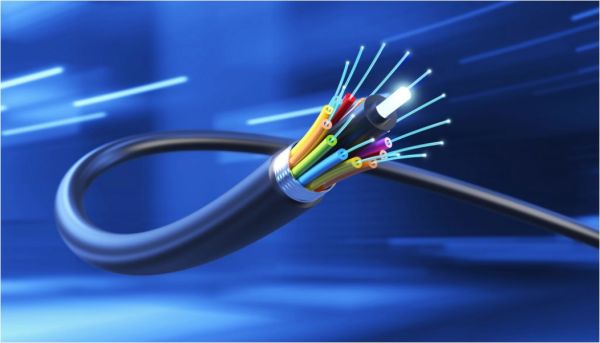[mc4wp_form id=”2320″]
Internet Disruption In Ghana and Parts Of Africa
-
March 23, 2024
- Posted by: Evans Asare

The Internet disruption in Ghana and parts of Africa was blamed on bad engineering and a poor severance plan.
Apart from AT Ghana, all the telcos in Ghana and almost all banks suffered badly from the recent multiple subsea cable cuts simply because of poor engineering and bad redundancy strategy by the telcos, an industry expert has said.
In his words “In fact it is ridiculous and inconceivable that Telcos pay engineers, and yet their international networks can go off for more than two hours in a day, and so many days will pass without them even knowing exactly what is happening to the undersea cables.”
This is the hard and cold statement of an industry expert who is a telecoms engineer himself, and has worked in both the operator and regulatory space for more than a decade.
The simple truth is that all four undersea cables that got damaged – ACE, WACS, MainOne, and SAT-3, are from the West (Portugal and France), all the way down South Africa, with landing stations in Ghana and other African countries.
Affected Telcos
MTN and Telecel (formerly Vodafone) chose to buy all their primary and backup capacities from those four subsea cables, while AT Ghana chose to buy some backup capacity from the West India Ocean Cable Company (WIOCC), which is on the east.
So, when the damage happened on the four subsea cables from the west, AT Ghana quickly migrated its load onto the WIOCC cable and restored services almost immediately. Indeed, Techfocus24 also learnt that an internet service provider, K-NET, also migrated its load to another cable coming from the East, Angola Cable and restored services within 40 minutes of the disruption.
According to the expert, the contrast between the impact of the disruption on AT Ghana vis-a-vis the impact on the two other telcos is simply down to engineering and redundancy strategy.
“How could they [MTN and Telecel] put all their primary and backup capacities undersea, and even so, on undersea cables coming from one direction. Very bad decision indeed. They will tell you it makes a good business case because satellite is expensive. But now they are forced to come tell consumers about problems instead of solutions.
He said engineers have no business explaining to consumers what challenges the network is facing, adding that all these plenty and repeated explanation to consumers only exposes a certain weakness in the engineering and redundancy strategy of the affected telcos.
“Consumers don’t need to hear about the problem – that is why you employ engineers to solve the problems and not to tell consumers what the problem is. Indeed, some telco towers go down on some days, but engineers use their expertise to direct signals from other towers and solve the problem without telling customers anything. That is what engineers are paid for.
“So, the problem MTN, Telecel and some banks are facing today is simply an engineering problem and one of bad choices in terms of a redundancy strategies.” he said.
MTN, Telecel to the East
Indeed, MTN and Telecel customers have gradually began to experience some improved internet access, and the two telcos have attributed that to support from their international partners.
Techfocus24 has gathered that the international partners the two telcos referred to are undersea cables coming from the East, which clearly indicates the expert’s assertion is right. The two telcos should have long had redundant capacities on cables coming from the East as backup before now.
Banks
Speaking of banks, the expert thinks it is unfortunate that banks in Ghana host customer data at public data centres abroad, when there are tier 2 and tier 3 data centres right here in Ghana, which can host all the data of their customers.
Because the customers’ data are being hosted abroad, the customers of “these irresponsible banks” are having challenges access their funds simply because when they query the bank’s system the information has to go to a data centre abroad before giving feedback, and now that the cables on which the information ride has been cut, customers are facing problems.
Neighbouring countries
The expert noted that one other reason service providers in Ghana have no excuse for what is happening is countries like Nigeria, Cote d’Ivoire, Cameroun and others are on the same route like Ghana but they are doing far better than Ghana for the simple reason that the operators in those countries have better redundancy strategies.
He also noted that even land-locked countries like Burkina Faso and Niger, who depend on Ghana for connectivity, are out of the woods because the service providers there have alternative routes they fall on in case the capacity from Ghana or another country is affected.
Government’s role
Some have argued that government should have built satellite and some terrestrial networks to serve as a national backup infrastructure against disruptions like the one the country is experiencing now. But the expert noted that since the telecom market was liberalized, all of those roles have been left with operators and government has even been stopped from being prescriptive in it regulatory approach.
“Before this market was liberalized, there was the SAT-3 and the Kuntunse Satellite station which were own by Ghana Telecoms on behalf of government. Now we have liberalized the market and the regulator has been asked not to be prescriptive in its approach,” he said.
He also note that currently the government has a role to provide all kinds of infrastructure which are needed for immediately use, so it does not even make economic sense to invest into backup infrastructure for an industry that has been liberalized and are expected to have engineers that will advise on effective redundancy strategies to prevent this kind of protracted service disruption.
But there are still proposals on the table for African governments and industry players to discuss a holistic approach to preventing a recurrence of such massive internet disruptions. The overdependence on undersea cables, and particularly undersea cable coming from the West, must be look at again with a better alternative in mind, in terms of redundancy.
It is also time for Africa countries to start thinking about a self-dependent strategy, where a mix of satellite and terrestrial mesh networks are build to ensure that in the event any such disruption happens from one direction, there are more than enough routes to fall on and restore service expeditiously.

Your article helped me a lot, is there any more related content? Thanks!
I don’t think the title of your article matches the content lol. Just kidding, mainly because I had some doubts after reading the article.
I don’t think the title of your article matches the content lol. Just kidding, mainly because I had some doubts after reading the article.
Can you be more specific about the content of your article? After reading it, I still have some doubts. Hope you can help me. https://accounts.binance.com/sl/register?ref=OMM3XK51
I don’t think the title of your article matches the content lol. Just kidding, mainly because I had some doubts after reading the article.
tadalafil citrate powder cialis sample pack or where to buy generic cialis ?
https://images.google.com.ni/url?q=https://tadalaccess.com best price cialis supper active
where to buy generic cialis cialis medicare and cialis doesnt work cialis where can i buy
sublingual cialis: mint pharmaceuticals tadalafil – cialis in canada
no prescription cialis: Tadal Access – cialis 20 mg
https://tadalaccess.com/# best price on cialis